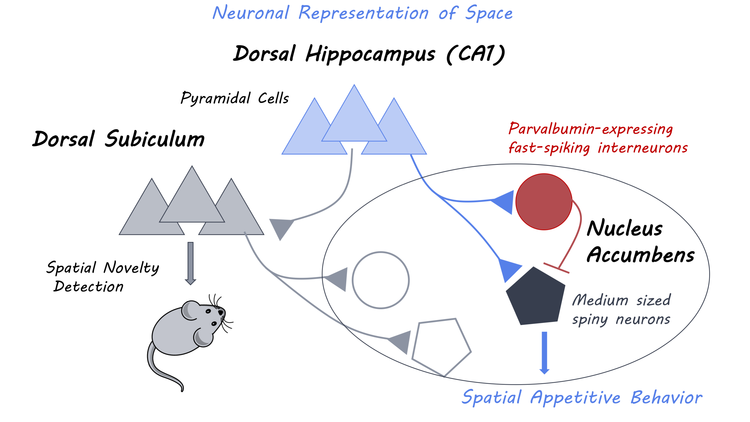Being able to recall specific memories of where to find food – a reward-seeking behavior – is a fundamental part of survival. In mammals, pyramidal cells in the dorsal hippocampus store memories of the environment around us. The nucleus accumbens (part of the ventral striatum) plays an important role in connecting memory and the motor system to process reward-driven behaviors such as eating.
Published by BrainPost.

